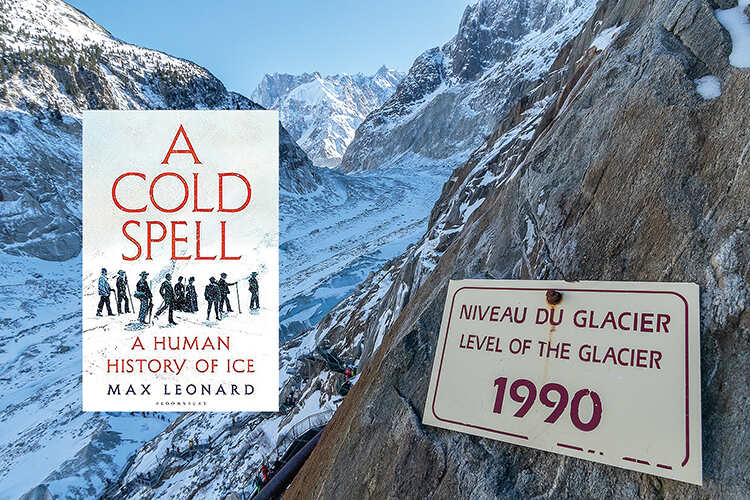
Max Leonard takes the reader on a twisting journey as he explores human history through an icy lens
Review by Duncan Madden
It’s strange to think of a time when ice was a novelty. When did Homo sapiens first encounter it? When did ice skating go from exotic pursuit to festive tradition? When were glaciers strange things that ‘humankind had to learn how to see’ rather than canaries in the coal mine of our eco-disastrous future? As Henry David Thoreau said, ‘Ice is an interesting subject for contemplation.’
Max Leonard certainly agrees. A Cold Spell is his thought-provoking chronicle of humanity through an icy lens. From its hand in shaping the birth and birthplace of the human race to its modern status as a metaphor for civilisation, Leonard charts the role ice has played and continues to play, in our lives with great curiosity.
The book’s success is rooted in Leonard’s ability to weave something so ubiquitous into a journey of twists and turns. Traversing history, culture, language, science and human nature via evocative tangents, he consistently frames ice in surprising and insightful ways, and, in doing so, lends it a magical quality. Nowhere is this truer than in stories of icy obsession – adventurers sacrificing their lives to navigate its polar domains, scientists dedicating theirs to unravelling the secrets it holds.
It would have been remiss of Leonard to shy away from the role ice will also play in our future – or, more terrifyingly, the potential role it will play as it melts away. He handles this deftly, smartly leaving it implicit rather than creating a platform to preach from – a silent dread that lingers and grows the more he reveals its fundamental nature. Even the book’s name, A Cold Spell, speaks to its transience and fragility.
In his introduction, Leonard tells the story of William Windham, whose 18th-century excursions onto the Alpine Montanvert Glacier (known now as the Mer de Glace: ‘Sea of Ice’) resulted in the first English-language account of what a glacier was – or was like. It’s pertinent in so much that Windham entirely fails to achieve his goal: ‘I own to you, I am extremely at a loss how to give a right idea of it.’ In A Cold Spell, Leonard succeeds where Windham failed.




